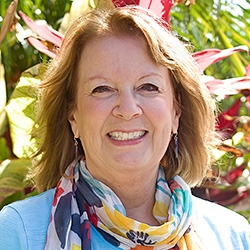

NVC Resources on Vulnerability
-
Shared vulnerability can build more intimacy, mutuality, being seen and heard, empathy, or community. Inviting shared vulnerability means earning another’s trust that you can consistently offer attentive, curious, and compassionate listening. Here are four strategies to invite shared vulnerability.
-
A good baby doesn't cry. This early conditioning against vulnerability starts shaping us very young.
-
Sharing more vulnerably provides opportunities for fulfilling connection. As social beings we rely on feedback to see our effect on others. We can get that feedback through body language, facial cues and words. To expand your capacity to share more vulnerably you can create supportive conditions and timing. You can ask for feedback by making in-the-moment requests of others and yourself before and after you share.
-
Does unworthiness keep you from expressing vulnerably and honestly? Afraid of being "found out?" Join CNVC Certified Trainer Arnina Kashtan as she explores this topic with a workshop participant to discern stories from needs, recognize the tension between self-acceptance and personal development and sit with the discomfort of self-acceptance.
-
The pandemic has unsettled deep patterns of consumption. There’s a fear, and with it comes the mindset that is the heart of rampant consumption; habits which are essential to the market economy’s “economic recovery”. High consumption is also the most direct cause of environmental degradation. What do we need in order to significantly reduce consumption for our greater resilience and freedom, and to increase our planetary and human sustainability?
-
What do you do when you are thinking that it's not "emotionally safe" to speak honestly? Join CNVC Certified Trainer Arnina Kashtan as she explores this topic with a workshop participant.
-
Trainer tip: Do you have behavioral patterns that block intimacy? When we are feeling our most vulnerable, we often want intimacy but also tend to keep it at bay. Acknowledge your need for intimacy, and find people you can trust to love you as you are.
-
When we take a leap in life and put our hearts out into the world in new or bigger ways—sharing a song, dance, or poem, writing a book, competing at a sporting event, giving a speech, and so on—there is greater potential for aliveness but also for shame and pain
-
How excited do you get about connecting with people who are proving themselves right and who act like they know it all? Do you prefer the company of not-knowers who are in awe of the mystery of life and exploring with humility and innocent curiosity? Masking our vulnerability in not-knowing can point to deep wounds inside us, where perhaps the common denominator is our desire to prove our worth.
-
2020 has added three major global crises to our long and painful list of ongoing challenges:
- Public health crisis emerging from the Coronavirus infecting humans;
- Governance crisis manifesting especially in global protests against police brutality and governments more generally; and
- Economic crisis unfolding from responses to the pandemic.
And as a result, many of us who share NVC with others have been feeling a growing unease about our roles. I have heard from quite a few who want to go beyond using NVC primarily as a personal growth tool within the market economy, and often don't know how to do so. This course is designed to respond to this need by supporting anyone who shares NVC with others – regardless of experience or certification – in opening to the way systemic perspectives deepen and transform how we bring NVC to people, communities, and organizations.

Quick Links
Subscription Preferences
Stay In Touch!
Looking for ways to keep up with NVC Academy news, get special offers, free resources, or words of inspiration? Here are five ways to stay engaged:









